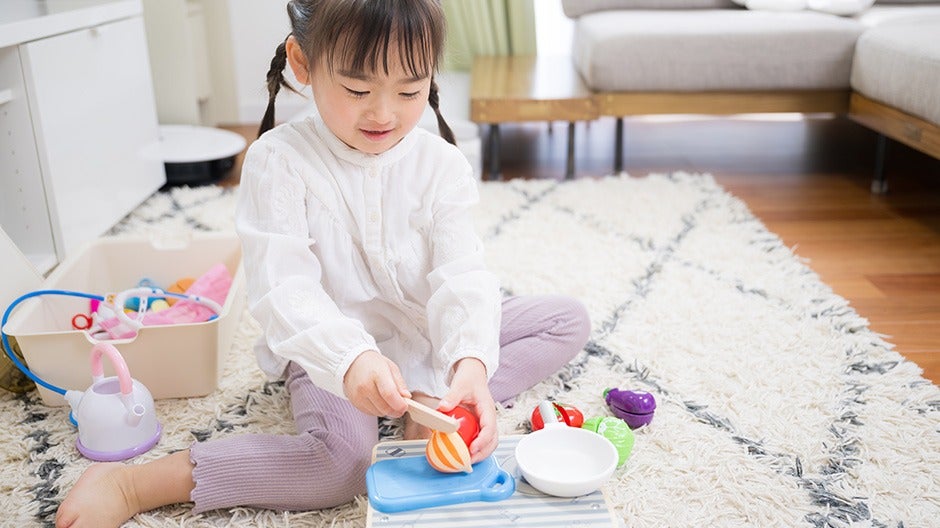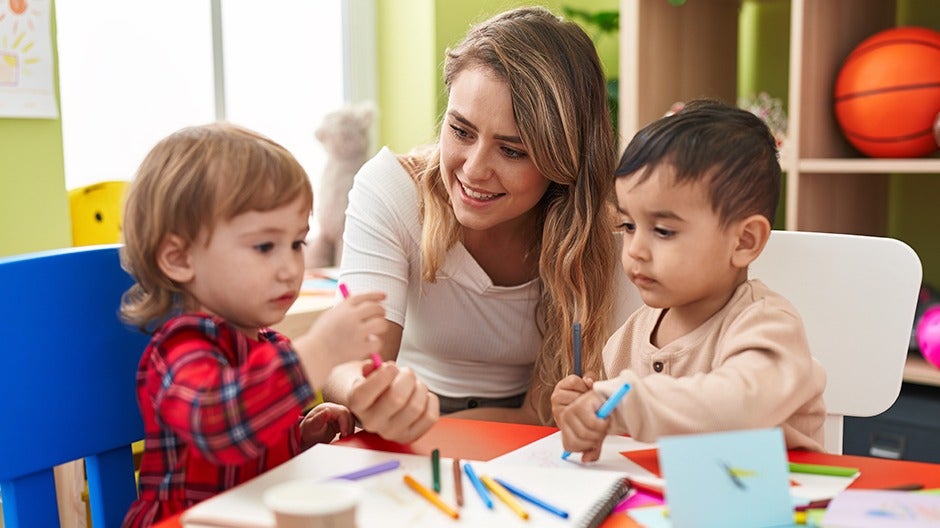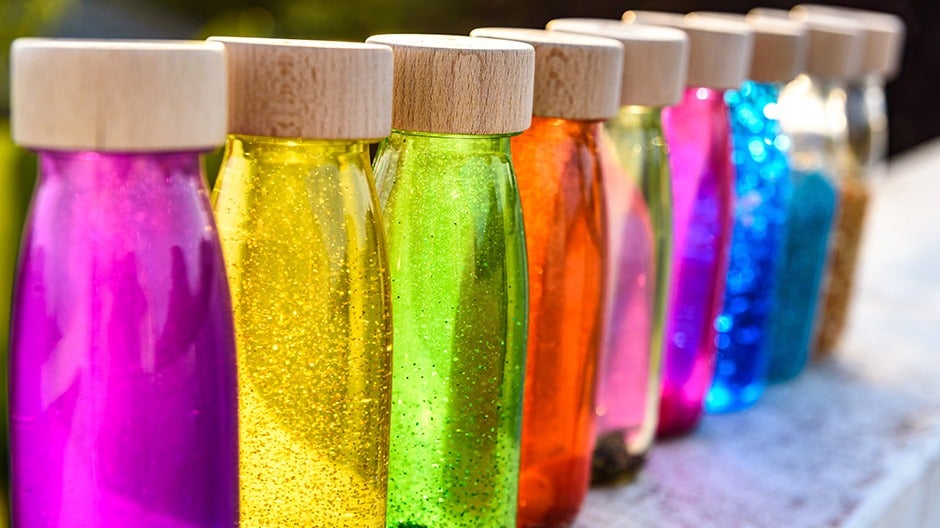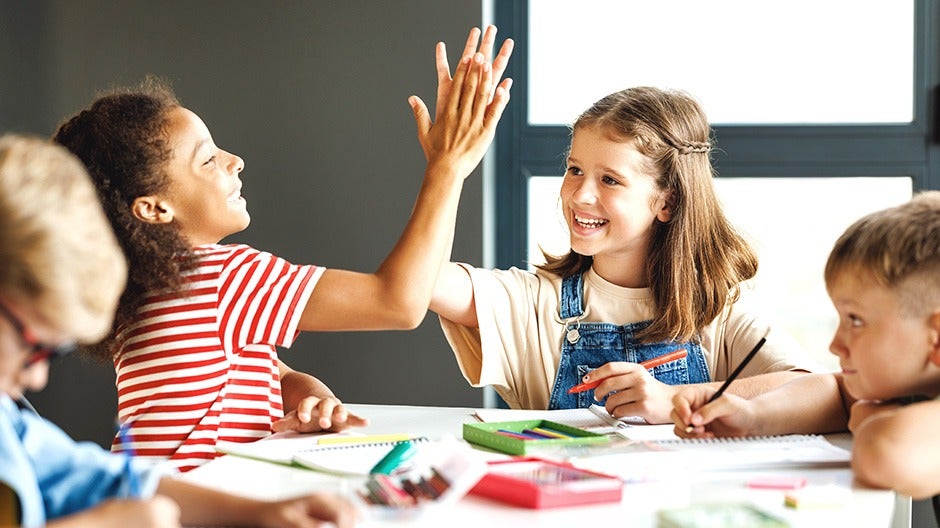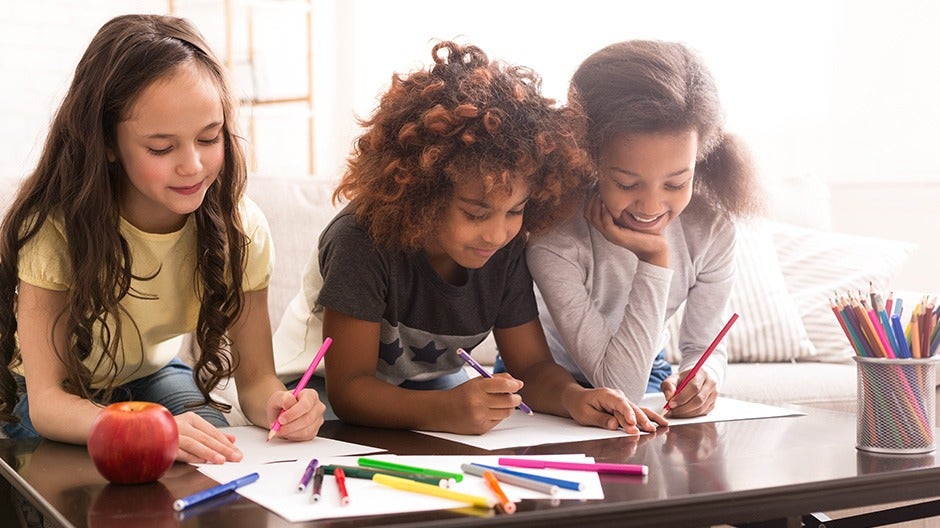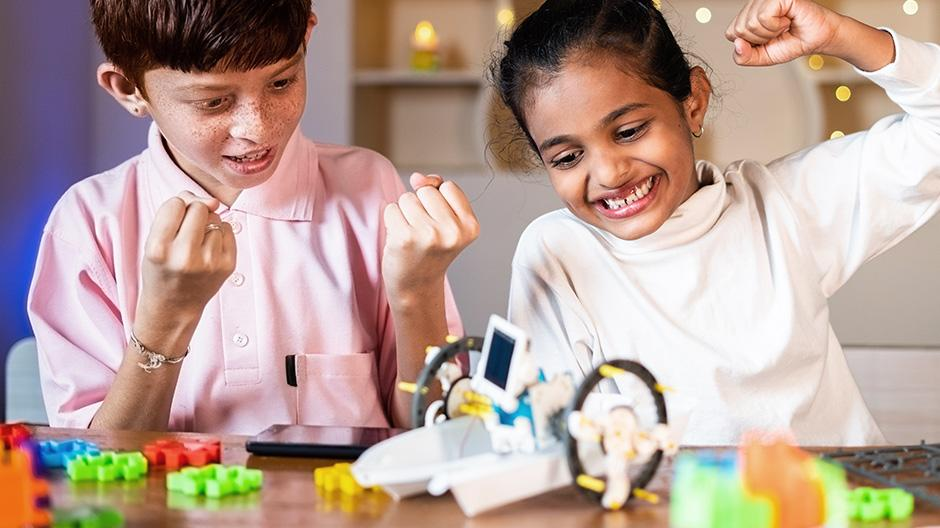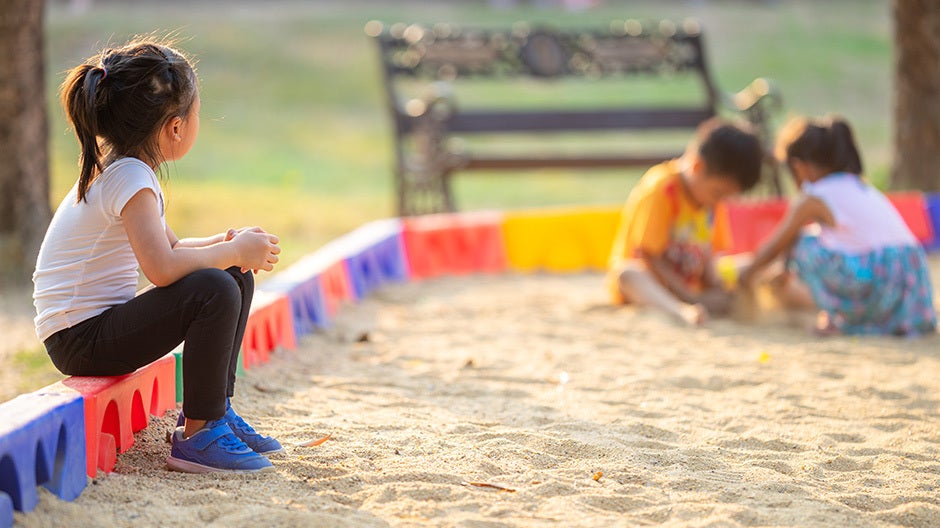If you’re looking for fun educational games for your child, you’ve come to the right place!
Finding the right activities for kids sounds easy — just a simple Google search should reveal plenty of options to choose from. But are they all educational? And will your child gain anything substantial from them?
While most games can have the “fun” element, many lack the educational part.
As a parent, you want to ensure that the games your child engages in can help them develop essential skills to grow into happy, healthy, and well-rounded human beings.
At Begin, we understand this and are here to help!
In this article, we’ve compiled a list of educational games that will foster a variety of essential early childhood skills. With these options, kids can get excited about learning again.
The Importance Of Educational Games
1) They Motivate Kids To Participate
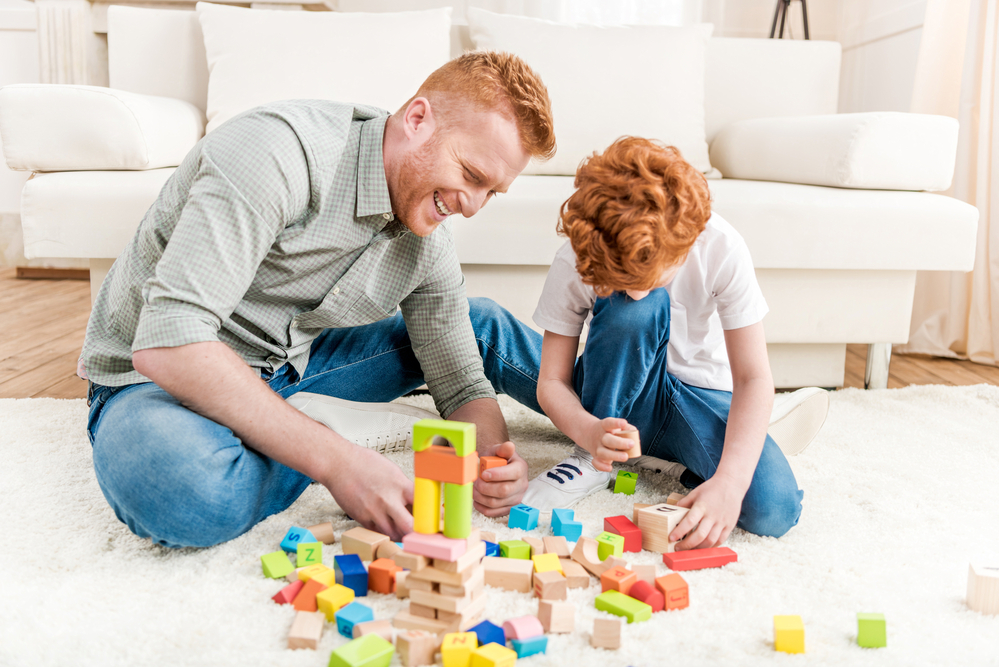
Over time, we’ve learned that there are different ways to approach learning. Long ago, it was widely accepted that kids learn best indoors, in a classroom environment, with a teacher standing in front of them.
While the traditional sense of schooling (learning in a classroom) still exists, research shows that this isn’t the only way to teach children. Now, we have educational apps, remote learning, gamification, and so much more.
Some of these modern tools are effective because they engage children in an activity. As a result, kids get to have fun without realizing that they’re learning.
2) They Teach Problem-Solving Skills
Games, by nature, consist of rules and goals. The rules are a great way to help children learn how to follow directions, while the goals encourage kids to tap into their creativity and develop problem-solving skills to win or complete a task.
Problem-solving is an essential skill that kids (and adults) need to learn to function effectively in life. Introducing your child to challenging games and encouraging creative thinking will help them develop this important ability.
3) Fun Educational Games Encourage Learning Without Stress

Having to answer questions on tests or write essays in class can be stressful for some children. Because of this, it can be hard for them to learn in a more structured, formal environment.
But fun educational games are way less stressful. Kids can show their skills, knowledge, and understanding of the topic more informally. This relaxed approach can create a much more positive learning environment overall.
4) Kids Learn Best Through Play
Many people are surprised to learn just how effective playtime can be. But in fact, play can help children develop cognitive, social, and literacy skills, to name a few. It can also help develop their physical abilities.
The more your child engages in fun educational games, the more chances they have to develop these essential skills.
Now that we’re on the same page about why educational games are so important for your child, let’s get into five fun learning activities that you can try at home with your child today.
5 Fun Educational Games To Try At Home
1) Ocean Sensory Bin
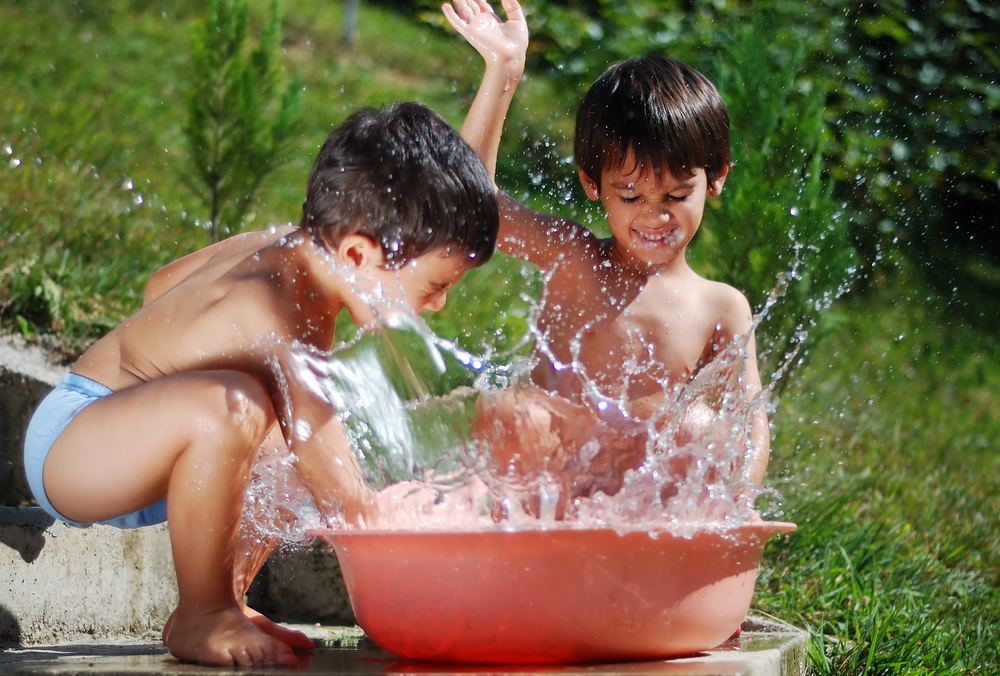
What You’ll Need:
- Medium bin or deep tray
- Dried pasta for coral
- Paint
- Playdough
- Water
- Blue food coloring (optional)
- Scoops or cups for playing in the water
- Ocean creature toys and loose parts like pebbles, shells, and starfish
What To Do:
To create the coral, start by adding a cup of dried pasta into a resealable bag, squirt some paint (colors that will represent the coral) into it, and then seal the bag. Shake it until all the pasta is covered in paint, and then lay the pasta out on a baking tray to dry.
Next, place playdough into the bin (in the form of “rocks”). Press your dried pasta into the playdough to create a coral effect.
You will then need to add water to the bin and a drop of blue food coloring (if you’d like to make your ocean water really stand out).
Lastly, place ocean-themed animals and water toys into the bin to create an underwater world. Now, you have your very own ocean!
The main goal of this game is to encourage your child to explore the “ocean.” This is a great sensory game for preschoolers and kindergarteners. They can touch, squeeze, and examine all the colorful and fascinating creatures in the deep blue sea.
2) Color The Rainbow
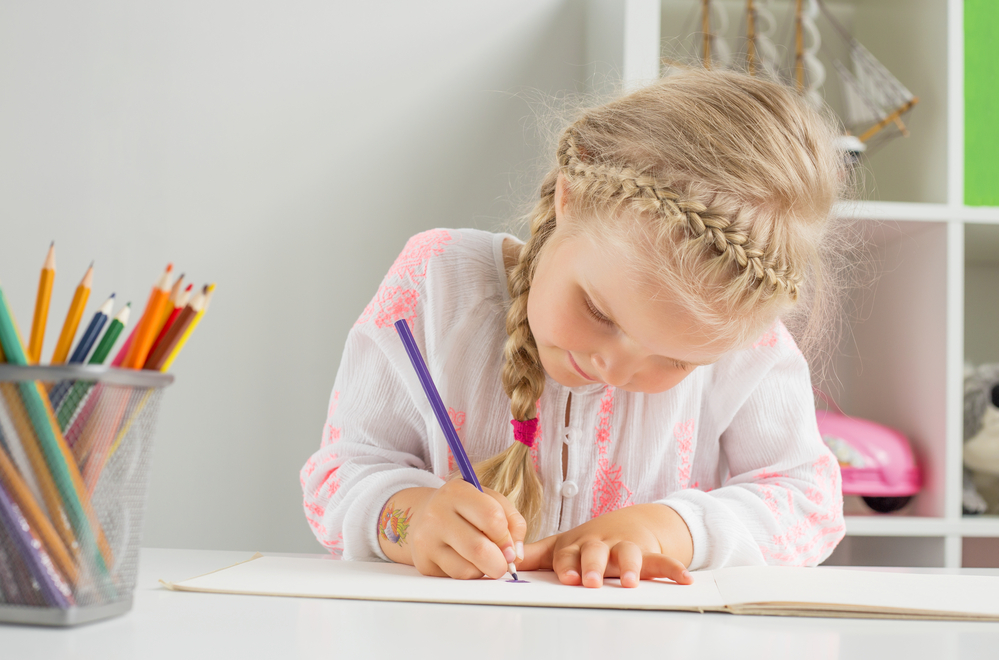
What You’ll Need:
- 2 Large sheets of paper
- Black marker
- Crayons (or colored pencils)
- Tape
- 1 die
- 2 small objects (dried beans or paperclips work well)
What To Do:
To begin, write “Start” at the bottom and “Finish” at the top of both sheets of paper. Then, right next to “Finish,” draw a colorless rainbow with your marker. Each player will have their own paper with a rainbow.
Next, draw several squares (12 is a good amount) to create a path from “Start” to “Finish” on both papers. Lastly, number the squares in numerical order from start to finish (beginning with 1).
The aim of the game is simple: Get to the rainbow to color it in. To do that, each player will take turns rolling the die. With each turn, the player will move their object (dried bean or paperclip) the number of squares on their paper that matches the number they rolled.
When a player gets to the top, they will color one stripe of their rainbow in. After doing so, they need to go back to “Start” again and proceed to play. Whoever completely colors in their rainbow first wins!
This is an excellent game for kindergarteners and first graders as they get to work on their counting skills.
3) Let’s Build Shapes
What You’ll Need:
- Playdough
- Craft sticks
What To Do:
The object of this activity is simple: Build any shape you want with the playdough and craft sticks.
For example, if your child decides to build a triangle, they’ll need three craft sticks (which will represent the three sides of the triangle), and then the playdough can act as a glue to help connect the craft sticks.
After making any desired shapes, discuss the properties of each figure: This has four equal sides, so it’s a square. This is swirly like a snake! That looks like the wings of a helicopter.
This activity is great for five to seven-year-olds and will help them explore the names and properties of 2D and 3D shapes.
4) Indoor Maze

What You’ll Need:
- Large cardboard boxes
- Tape
- Large binder clips
- Scissors (or X-Acto knife)
What To Do:
First, you’ll need to decide where and how you’d like the maze to be set up. Ideally, you’ll want a large space, so be sure to move some chairs and tables if necessary.
Then, you’ll need to use your scissors or X-Acto knife to cut decent-sized doors (ones that your child can crawl through) out of the cardboard boxes. Place one of these “doors” at the start of your maze and then another at the end.
Next, it’s time to connect your maze by attaching the binder clips to the top of your boxes. The layout can be however you prefer — you can add tunnels, curving maze “walls,” smaller boxes to block doorways. There is no right or wrong here!
Your child will then find their way from start to finish without pushing down the cardboard “walls.” Mazes are great for developing cognitive skills because your child will need to think, reason, and remember to make their way out of the maze.
This activity is great for five to seven-year-olds and will help them explore the names and properties of 2D and 3D shapes in addition to helping develop their gross motor skills.
5) Dramatic Play
Dramatic play is often called “pretend play.” This is when kids assign roles and act them out. For example, they can be chefs, doctors, police officers, or even a mommy or daddy!
Dramatic play can also be an open-ended game in which children have the opportunity to play in any way they wish and at any time. We recommend having a dress-up box available with items (i.e., cooking equipment, play stethoscope, etc.) that encourage such play.
At Begin, we even have a Mail Adventure Kit you can try at home! The kit contains a mail bag, stationary, and other items that encourage imaginative play as letter writer and postal worker.
On the surface, this all seems like fun and games. However, this sort of play offers several benefits for children, including developing their imaginations, teaching conflict resolution skills, and building their confidence.
Note: Kids will usually start displaying some basic pretend play at around age two. As they get older, their imaginations and creativity improve, and so does their dramatic play.
Tips For Choosing Fun Educational Games
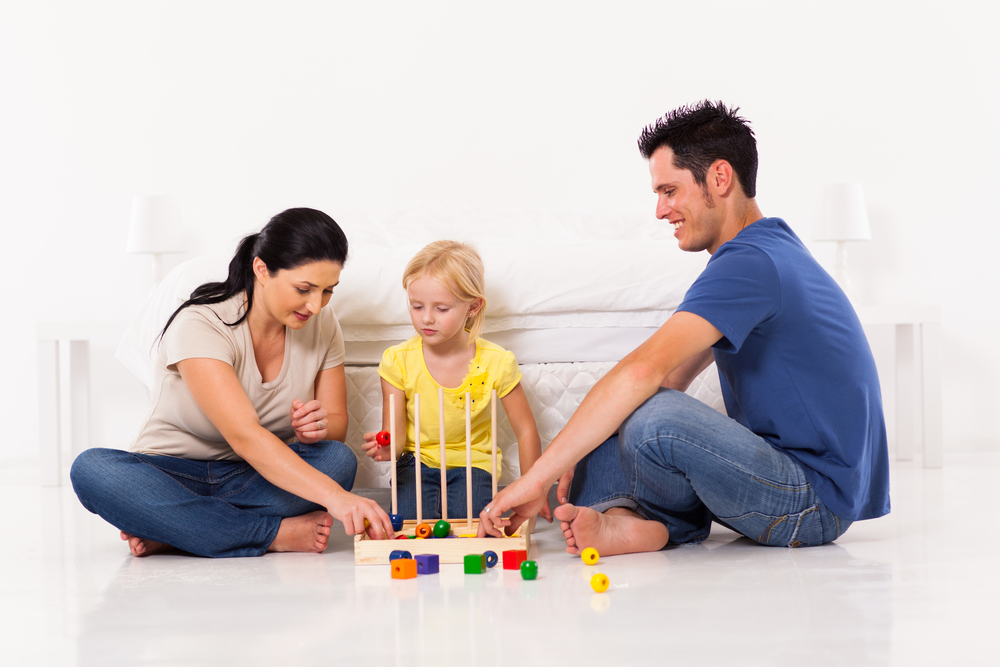
There are lots of things to consider when trying to find the right educational activities for your child. Here are some pointers to keep in mind:
- Choose games that help develop a variety of skills.
- Some screen time is OK, but be sure to mix things up. You can include both indoor and outdoor play, too.
- Choose games with minimal rules. Young children have a hard time remembering and even understanding complex rules, and this can inhibit fun. Keep it simple to enable maximum positive engagement!
- Pick age-appropriate games. You want to challenge your child but not give them a game that’s beyond their age group’s abilities. If it’s too hard, they may get frustrated and give up more easily.
3, 2, 1…Let’s Play!
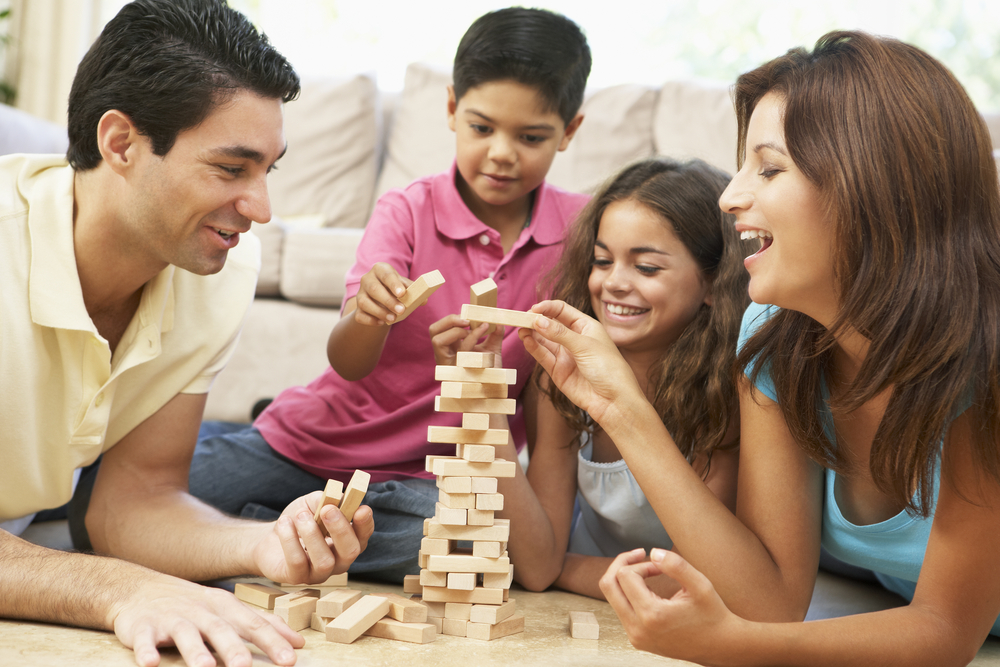
From our list above, we hope you’re clear on one thing: Fun educational games aren’t just an option; they play an essential part in your child’s development. The more often your child engages in them, the better.
For more fun games, check out our HOMER Explore Kits. These kits allow your child to explore numbers, letters, and feelings in a fun and engaging way. Happy learning!

